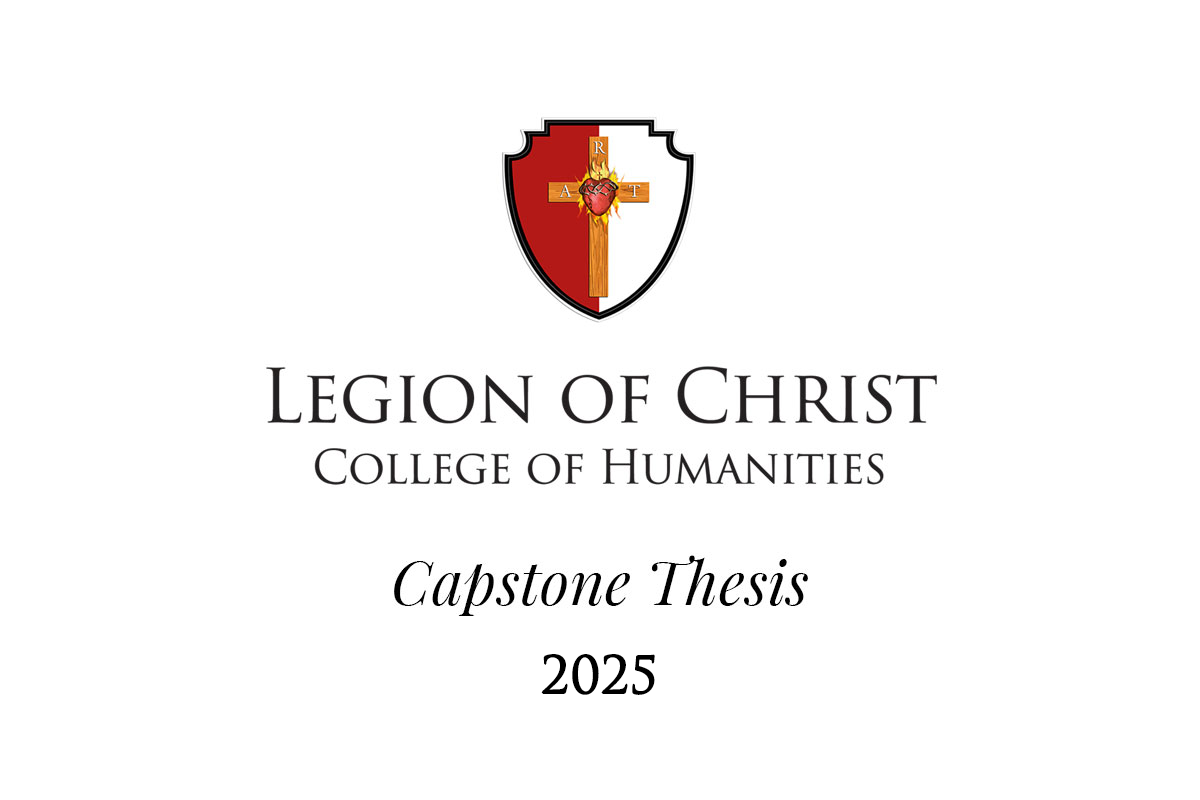Blog Posts
Análisis Filosófico en Ética Nicomáquea de Aristóteles
Br. Mauricio de María Correa Reyes, LC
July 10, 2025
«Lo más hermoso es lo más justo; lo mejor, la salud; pero lo más agradable es lograr lo que uno ama»[i]. El cuervo, con su plumaje negro, es una figura casi inconfundible que evoca una ...
Read More →
Análisis Literario en La Peste de Albert Camus
Br. Mauricio de María Correa Reyes, LC
July 10, 2025
«Hay en los hombres cosas más dignas de admiración que las de desprecio»[i]. El tejón de la miel es una criatura de contrastes, caracterizada por su peculiar pelaje blanco puro en la parte superior de ...
Read More →
Modesty and the Search for Beauty: The Fashion Design of Cristóbal Balenciaga
Br. Rodrigo Serrano, LC
June 15, 2025
Introduction I begin this essay with a reflection on the beauty that is within us; the Beauty itself dwelling within us. The poem that St. Teresa of Jesus composed when she heard the words Búscate ...
Read More →
Marian Art Throughout the Centuries: How Marian Art Teaches and Evangelizes
Br. John Paul Gregor, LC
June 15, 2025
Introduction: Marian Art throughout the Centuries One of the most popular themes in Sacred art, ever since the Early Church, has been the Virgin Mary. Artists have painted Mary in different styles and scenes to ...
Read More →
Fatherhood and Hope
Br. Ricardo Parra, LC
June 15, 2025
Introduction For my capstone thesis I want to explore the theme of hope and fatherhood by making a parallelism between the Odyssey by Homer and The Road by Cormac Mcarthy. Seeing how two texts ...
Read More →
Euripides’ social and moral teachings through: Medea, Alcestis and the Troyan Women
Br. Alexis Enriquez, LC
June 15, 2025
Introduction Regarded by Aristotle as “the most tragic of the poets,” Euripides provided deeply spiritual, moral, and psychological explorations of exceptional and domestic life at a time when Athenian confidence and certainty were moving toward ...
Read More →
Don Quijote & Huckleberry Finn Two Social Novels
Br. Andrés Ramos LC
June 15, 2025
0. Introduction 0.1 The Purpose of the Thesis This aims to analyze and compare two emblematic literary work: Don Quixote by Miguel de Cervantes and The Adventures of Huckleberry Finn by Mark Twain, approaching ...
Read More →
Autobiographical Insight of Dostoevsky’s Notes from a Dead House
Br. Gabriel Fernandes, LC
June 15, 2025
1. Introduction 1.1. Purpose of the Thesis This thesis argues that Dostoevsky’s imprisonment transformed his worldview, as reflected in the themes of suffering, redemption, and freedom in Notes from a Dead Hous[1]1. The novelist ...
Read More →



